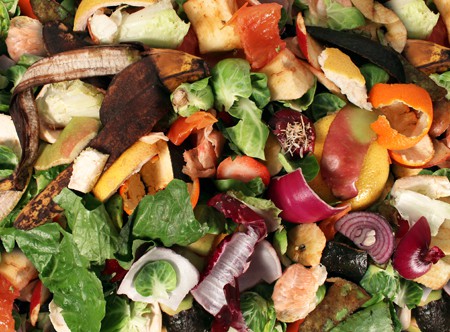Operators within the organic waste treatment sector predict that there may be consolidation in the anaerobic digestion (AD) market over the coming months, in part, due to shortages of food waste.
Despite some reporting a surge in food waste volumes after the Christmas period of up to 25% compared to typical months, more generally AD professionals are suggesting there is increasing competition for feedstock across the UK.
Competition

Some AD operators are predicting a consolidation in the market, in part due to shortages of food waste
Speaking to letsrecycle.com, Jeremy Jacobs, technical director at the Renewable Energy Association (REA) said that as more plants are being built it has led to an increase in competition for material.
And, he said because of work by organisations such as WRAP – Waste and Resources Action Plan – on minimisation, there is less food being wasted.
However, he said it was a “local affect” which varies across the country, and that some facilities are experiencing an “overcapacity”.
He also explained that the number of councils providing food waste collections has remained “very static” at around 50%, he estimated. Mr Jacobs said that some councils found the service too costly to provide and he said because of this some councils have “dropped out” of providing it.
“We will see more food waste coming on stream but we do need government intervention to drive it forward faster.”
Jeremy Jacobs
REA
He added that ideally if all councils started collecting food waste then there would be enough material in the market. “We will see more food waste coming on stream but we do need government intervention to drive it forward faster,” he added.
Feedstock
Before Christmas, one AD operator told letsrecycle.com he expected the market for food waste to ‘collapse’ in the New Year. He said that the lack of the material was leaving companies “fighting over feedstock”.
He explained: “There’s not a real balance between supply and demand, as more sites are coming online.”
It is understood that the situation extends to Scotland, but it is thought that the problem is not as great over the border.
Last week, an operator in Scotland said: “There is still a shortage in food waste but it is less pronounced than over in England.”
In explanation, he said that there is less competition in Scotland, and more legislation in place to encourage businesses to collect waste separately for treatment (see letsrecycle.com story). As a result, he said gate fees in Scotland are higher for food feedstocks. Although he explained that concerns over available feedstock still exist. “Consolidation is slowly starting,” he added.
Others paint a more positive picture. One operator told letsrecycle.com: “We do not have a shortage of food waste and haven’t done for two years.”
“Those that do are the ones that are inefficient,” he added. “It exposes unreliability.” He said that plants producing a higher energy output are likely to be operating at a greater cost advantage.
The operator said he sees a consolidation in the market over the next 18 months. And, he said that “once it starts it will be rapid”.
Acquisitions
Recently, the sector has seen a number of acquisitions by investors. Last month, letsrecycle.com reported that private equity investor Foresight Group, had acquired two large scale AD plants from Material Change (see letsrecycle.com story). And, last week it was announced that infrastructure investment manager, Ancala Parnters LLP, is expanding Biogen with the acquisition of an AD facility from Kelda Waste Services (see letsrecycle.com story).
The AD operator said that companies are investing now as the plants are in the market for a relatively cheap price and they see them improving in the next few years.
National Food Waste Conference | 28 February 2018 | Cavendish Conference Centre, London
Join producers, processors, waste management, local authorities, charities and more to discuss the opportunities and challenges that food waste presents.
The post AD operators predict market consolidation appeared first on letsrecycle.com.
Source: letsrecycle.com Waste Managment




